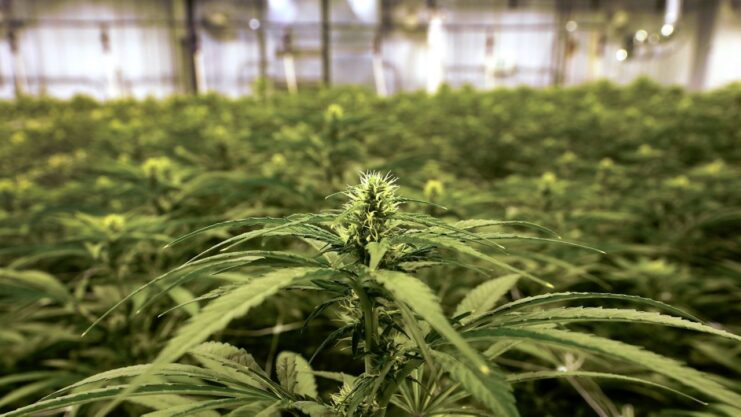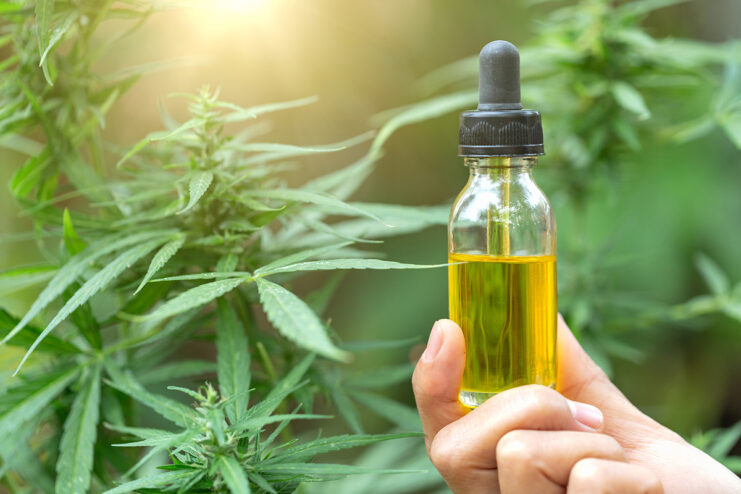Our immune system is the cornerstone of our health, warding off disease and maintaining a state of homeostasis. This biological powerhouse is a complex network of organs, tissues, cells, and chemicals that acts like a well-trained army, always on guard, ready to protect us from invading pathogens. These soldiers include white blood cells, antibodies, and other components that together wage a relentless war against infectious agents, viruses, bacteria, and other foreign invaders.
Much like a well-orchestrated symphony, it works tirelessly and precisely, ensuring our body can react to a myriad of potential threats. Yet, this symphony is more intricate than it seems. It is modulated by several factors, including genetics, diet, stress levels, and sleep patterns.
Furthermore, its inner workings are far from simple. The immune system interacts closely with the endocannabinoid system, a complex cell-signaling system in our bodies. This system, first identified in the late 20th century, is crucial for the maintenance of various bodily functions, such as mood, memory, appetite, and pain sensation.
The endocannabinoid system plays an essential role in maintaining bodily functions and is heavily influenced by cannabinoids, compounds found in cannabis. As such, the endocannabinoid system and the cannabinoids from cannabis enter into a dynamic conversation, shaping the physiological responses. This intriguing interaction paves the way for the relationship we will explore, offering a window into the potential synergies between our bodies and this ancient plant. This intricate dance forms the foundation of our exploration today.
Cannabis: A Natural Ally

Cannabis, often associated with its psychoactive properties, harbors a wealth of other compounds. In addition to THC (Tetrahydrocannabinol), which is primarily responsible for the psychoactive effects, cannabis contains hundreds of other compounds, including more than 100 types of cannabinoids. Some of these cannabinoids are non-psychoactive and have been shown to have therapeutic effects.
Among them are cannabinoids like THC and CBD (Cannabidiol), which have been studied for their potential health benefits. THC is known for its analgesic, anti-inflammatory, and antioxidant properties. CBD, on the other hand, has gained attention for its potential to alleviate symptoms of various conditions, including epilepsy, anxiety, and chronic pain, without inducing the intoxicating effects associated with THC.
Intriguingly, cannabinoids can modulate our immune responses, indicating a significant role for cannabis in immune health. These compounds bind to the endocannabinoid receptors, altering the signalling processes and thus influencing the immune responses. This unique characteristic suggests that cannabis may be a natural ally in our journey towards improved health and wellbeing, opening up new possibilities in our pursuit of balanced, holistic wellness. Cannabis, it seems, offers us a wealth of potential benefits far beyond its most well-known properties.
The Science Behind Cannabis and Immunity
Delving into the scientific perspective, research has revealed a complex connection between cannabis and immunity. Studies have shown that cannabinoids can interact with the immune system in numerous ways, influencing both innate and adaptive immunity.
On one hand, cannabinoids have been shown to exhibit anti-inflammatory properties, assisting in the regulation of immune responses. This is achieved by inhibiting the production of inflammatory cytokines, small proteins released by cells that have a specific effect on the interactions and communications between cells.
On the other hand, questions remain about the long-term impact of cannabis use on immune health. Some studies suggest that chronic use of cannabis could lead to immune suppression or dysregulation, potentially increasing the risk of infections and diseases. Hence, a balanced view, as offered by this comprehensive review, is crucial in our understanding.
This multi-faceted relationship paints a dynamic and evolving picture of how cannabis may shape our immune health. The science of cannabis and immunity is a field full of intrigue and promise, yet filled with many unknowns. In this realm of discovery, every research finding opens a door to new understanding and potential applications.
Specific Use Cases: Cannabis and Immune-Related Conditions

Exploring practical applications, cannabis has found a place in the management of autoimmune diseases, which occur when the immune system mistakenly attacks the body’s healthy cells. Conditions such as multiple sclerosis, rheumatoid arthritis, and lupus fall under this category.
By modulating the immune response, cannabis can potentially reduce the overactivity characteristic of these conditions. It may help in managing the symptoms and improving the quality of life for people living with these conditions.
Furthermore, its role in managing inflammation and infection has been explored, with promising results. Inflammation, a natural immune response, can sometimes persist longer than necessary, leading to chronic inflammation that can cause various health problems. Studies have suggested that cannabinoids can alleviate inflammation by suppressing the inflammatory pathways.
A hot topic of research is the potential of cannabis in cancer treatment, where the immune system plays a vital role. Cannabis and cannabinoids are being studied for their potential to mitigate the side effects of cancer treatment, such as nausea and pain, and even for their potential anti-tumor effects. This pioneering research signifies a critical juncture in our understanding of cannabis’s potential role in addressing some of our most pressing health challenges.
Growing Cannabis at Home: Embracing Auto-Flowering Seeds
As interest in cannabis’s health implications surges, so too does the trend of home cultivation. By growing cannabis at home, individuals can exert greater control over their health and wellness, as they have direct oversight of the cannabis strain, cultivation conditions, and processing methods.
Growing your own cannabis allows control over the strains you use, and thus, the cannabinoids you consume. This practice takes personalized wellness to a new level, offering an intimate understanding of the plant that’s at the heart of this exploration.
According to Zamnesia, an exciting development in this sphere is the advent of auto-flowering cannabis seeds. Unlike traditional cannabis seeds that require specific light cycles to transition from vegetative growth to flowering, auto-flowering seeds are genetically engineered to flower automatically, usually after a certain period of growth. This allows for quicker harvests and simplifies the cultivation process, making it more accessible to novice growers.
Embracing the art of cultivation can offer a deeper understanding of cannabis, enhancing our appreciation for its potential benefits. The process of growing cannabis can also foster a more intimate connection with the plant, contributing to a holistic understanding of its role in health and wellbeing.
Exploring Cannabis’s Potential with Responsibility
As the world increasingly turns its attention to the potential therapeutic applications of cannabis, it becomes even more crucial to navigate this exploration with an unwavering sense of responsibility. The intriguing dynamic between cannabis and the immune system offers a promising frontier in medical research. Preliminary findings have shed light on the idea that cannabinoids, the compounds found in cannabis, may indeed have a significant influence on immune responses. However, it’s imperative to tread with caution. The intricacies of this relationship are vast, and our comprehension of it remains in its nascent stages.
For anyone considering the use of cannabis, whether for medicinal or recreational purposes, it is of paramount importance to engage in thorough consultation with healthcare experts and to buy from well-respected sources such as Joy Organics. This is especially true for individuals grappling with pre-existing health ailments or those on other medications. The very essence of responsible usage lies in this dialogue and the ensuing guidance.
As we stand at the threshold of understanding cannabis’s full potential, it’s essential to approach this journey with an open mind yet anchored in caution. Fusing rigorous scientific investigation with a deep sense of personal responsibility offers the best path forward. In doing so, we might just discover transformative pathways for enhanced health and well-being.
Conclusion

Navigating the intersection of cannabis and the immune system requires traversing a labyrinth of complexities. The journey is not straightforward, as it involves understanding two of the most complex systems – the immune system and the endocannabinoid system. But with every step, we gain new insights that could guide us towards more effective and personalized health strategies.
As we continue to unravel the connections between cannabis and our health, we take another step towards embracing the potential of natural healing aids. The quest for knowledge is a continual journey, but one that holds great promise for those willing to embark on it.
This exploration represents an integral part of our journey towards holistic health, grounded in both scientific research and historical wisdom. By bridging the divide between modern science and traditional plant-based therapies, we can open new avenues for health and wellness.
It’s our hope that this article not only informs but also inspires you to explore the vast potential of natural aids in enhancing health and wellbeing. As we uncover more about the intricate dance between cannabis and

